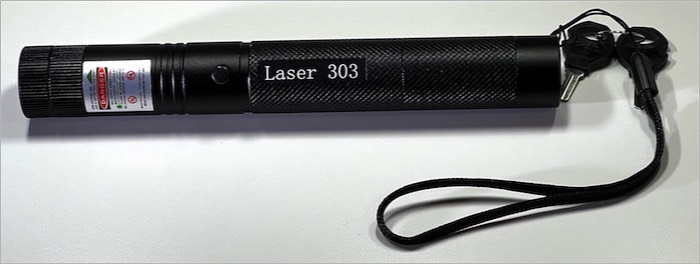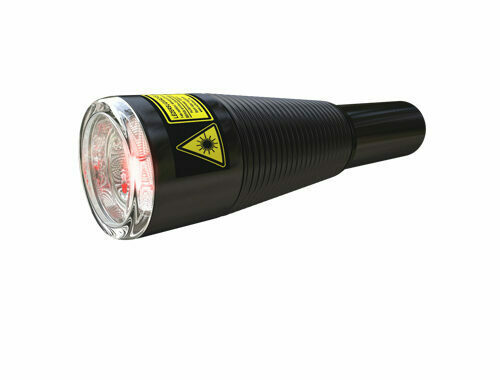New Facts On Deciding On A Safe Laser Therapy
New Facts On Deciding On A Safe Laser Therapy
Blog Article
How Can Low-Level Safe Laser Therapy (Lllt), Help With Respiratory Inflammation?
Low-level Laser Therapy (LLLT) is a safe and effective way to treat respiratory inflammation. LLLT is a treatment that can reduce symptoms of respiratory illnesses like bronchitis.
Bronchodilation - LLLT has been shown to induce relaxation of the smooth muscle cells within the airways, resulting in the bronchodilation. This could be beneficial to people who have conditions like asthma or chronic obstruction of the lungs (COPD) which causes breathing difficulties.
Improved Circulation - LLLT improves vasodilation and microcirculation leading to an increased blood flow to the airways and lungs. A better blood circulation is an excellent method of delivering nutrients and oxygen to the inflamed areas, which aids in healing and lessening inflammation.
Enhanced immune response- LLLT is shown to modulate immunity by stimulating the production of cytokines and improving the phagocytosis. This happens when immune cells infiltrate, and then eliminate, pathogens. This may enhance the response of the immune system to respiratory illnesses and decrease the inflammation in the airways.
Reduced Mucus Production - LLLT can help decrease excessive production of mucus in airways by encouraging the elimination of mucus as well as reducing inflammation of the respiratory tract. This is especially beneficial for individuals with conditions such as chronic bronchitis or sinusitis, where excessive mucus production can cause respiratory symptoms.
Alleviation Allergic Reactions – LLLT may be used to treat allergic rhinoitis (hay fever) it is a condition which manifests as an inflammation of nasal passages as well as the sinuses. LLLT helps to reduce allergies, such as nasal congested, sneezing, or itching.
It is safe Laser low-level laser therapy can be a drug-free treatment that is non-invasive and helps to reduce respiratory inflammation. It may provide relief from symptoms and improve the respiratory function. But, LLLT should only be utilized after consulting with a physician for a correct diagnosis. Check out the recommended safe laser 500 ár for site recommendations including lagy lezer, gyógyító lézer, laser lézer, lágylézer vásárlás, lágylézer árak, lágy lézer kezelés, lágylézer kezelés árak, laser lézer, lágylézer készülék, mozgásszervi problémák and more.
What Is The Safest Low-Level Laser Therapy (Lllt) Often Referred To As Laser Low Level Therapy, Be Used To Treat Throat Problems?
Safe Laser Low-Level Laser Therapy (LLLT) is a low-level laser which can be used to treat a variety of throat ailments. LLLT can be effective in conditions such as pharyngitis or tonsillitis, both of which cause inflammation of the tonsils. Signs of inflammation, such as swelling, pain and difficulty swallowing can be reduced.
Pain Relief- LLLT modulates pain perception through affecting nerve conduction and reducing the release of pain-related mediators such as substance P. In cases of throat irritation or sore throat, LLLT can help alleviate discomfort and pain, providing relief for those who suffer from throat pain.
Improved Tissue Repair and Regeneration- LLLT increases cellular metabolism, growth and repair. LLLT is effective in conditions such as throat ulcers and injuries to the vocal cord. It is able to speed up tissue healing, reducing the risk of complications and enhancing throat health.
Improved blood circulation- LLLT increases microcirculation as well as vasodilation. The increased blood flow is then directed towards the tissues in the throat. The improved circulation of blood can supply nutrients and oxygen directly to tissues that are inflamed and decrease inflammation.
LLLT can reduce swelling within the tissues of the throat through promoting drainage of fluids and lymphatic drainage. This treatment is particularly helpful for individuals suffering from laryngitis.
Management of voice disorders- LLLT is an effective treatment that improves voice quality, and reduce the symptoms that are associated with voice disorders like hoarseness. LLLT promotes tissue healing and decreases inflammation in the vocal cords. This can help restore voice function and alleviate vocal-related symptoms.
Secure Laser low-level laser therapy can be a non-drug, non-invasive way to manage different throat ailments. It can offer relief from symptoms such as inflammation, pain and difficulty swallowing. Before making use of LLLT for treating throat issues you must consult a professional healthcare provider for a proper diagnosis and recommendations. Have a look at the most popular safe laser for more recommendations including lágylézer kezelés, lézer bérlés, safe laser készülék, lágylézer árak, lezeres kezeles, lágylézer készülék bérlés, safe laser használata, lágylézer készülék, safe laser vélemények, safe laser kezelés budapest and more. 
How Do You Expect The Effects Of A Laser On Dental And Oral Health Conditions To Manifest?
Safe Laser low-level laser therapy (LLLT) used for treating oral and dental conditions can be beneficial based on many factors, such as the condition being treated, its severity, the patient's oral health and response to treatment. LLLT sessions are typically scheduled for a certain time to get the best results.
Type and severity of the Condition- The type and severity of the oral or dental condition being treated can influence the amount of LLLT sessions needed. Periodontitis and gingivitis may require different treatment methods and varying number of LLLT treatments.
The individual's response to therapy- A person's overall oral health and immune system as well as their healing capacity can affect how they react to LLLT. Certain individuals respond more to treatment than others and might see faster improvement in their symptoms.
Treatment Protocol - The dental professional's suggested treatment plan will play a major role in determining the frequency and under what conditions LLLT is employed. Healthcare providers can tailor treatment plans that meet the requirements of each patient, such as scheduling LLLT sessions on a regular basis or multiple times per week.
Chronic as opposed to. Acute conditions- The distinction between chronic and acute conditions will also impact the amount of LLLT sessions needed. Acute problems like oral sores, or post-operative pain may need fewer sessions to alleviate. Chronic issues such as TMJ or periodontitis might require more extensive treatments.
While some individuals will see improvement in their dental or oral problems after just a few LLLT treatments, others may require a longer course of treatment to get optimal outcomes. To ensure that you get the most out of LLLT treatment, it's important to follow the instructions given by a dentist and to attend scheduled sessions. Contact with your dentist and continuous monitoring of your oral health are also important for ensuring appropriate management.